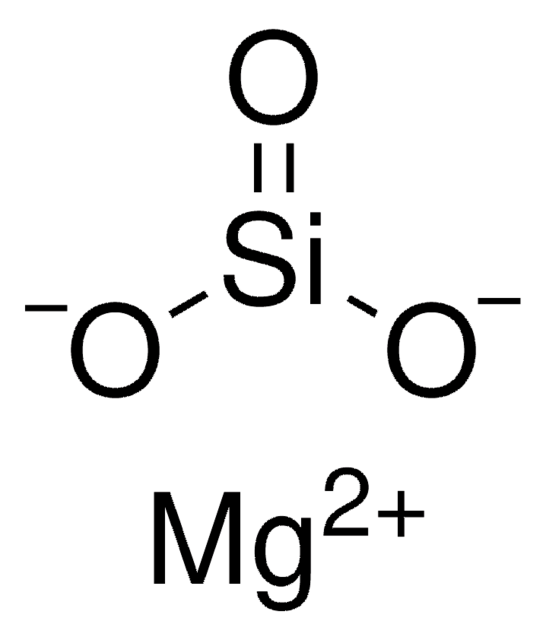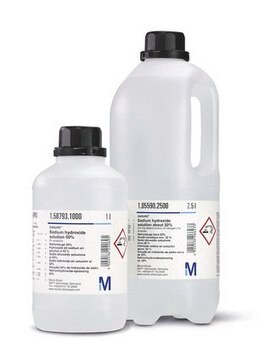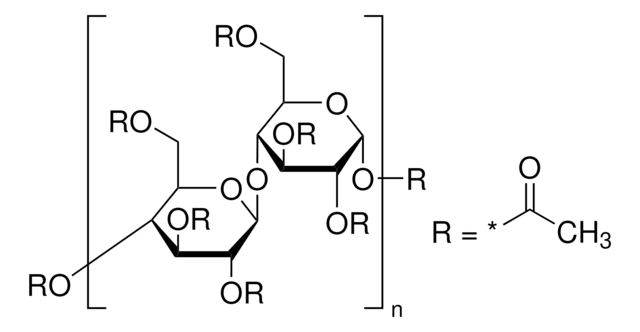742503
Calcium silicate
purum, 12-22% Ca (as CaO) basis, ≥87% SiO2 basis
Synonym(s):
Calcium hydrosilicate, Calcium monosilicate, Calcium polysilicate, Calsilite, Silicic acid, calcium salt
About This Item
Recommended Products
Quality Level
grade
purum
Assay
≥87% SiO2 basis
form
solid
composition
Ca (as CaO), 12-22% T
loss
≤7.0% loss on drying, 2h; 105°C
particle size
7.0-10.0 μm
pH
9.5-11.5 (5% in H2O)
density
2.9 g/mL at 25 °C (lit.)
SMILES string
[Ca++].[O-][Si]([O-])=O
InChI
1S/Ca.O3Si/c;1-4(2)3/q+2;-2
InChI key
OYACROKNLOSFPA-UHFFFAOYSA-N
Looking for similar products? Visit Product Comparison Guide
Related Categories
Application
Storage Class Code
11 - Combustible Solids
WGK
WGK 1
Flash Point(F)
Not applicable
Flash Point(C)
Not applicable
Choose from one of the most recent versions:
Already Own This Product?
Find documentation for the products that you have recently purchased in the Document Library.
Customers Also Viewed
Global Trade Item Number
| SKU | GTIN |
|---|---|
| 742503-1KG | 4061832886459 |
| 742503-15KG | 4061833551905 |
| 742503-500G | 4061832886466 |
Our team of scientists has experience in all areas of research including Life Science, Material Science, Chemical Synthesis, Chromatography, Analytical and many others.
Contact Technical Service










